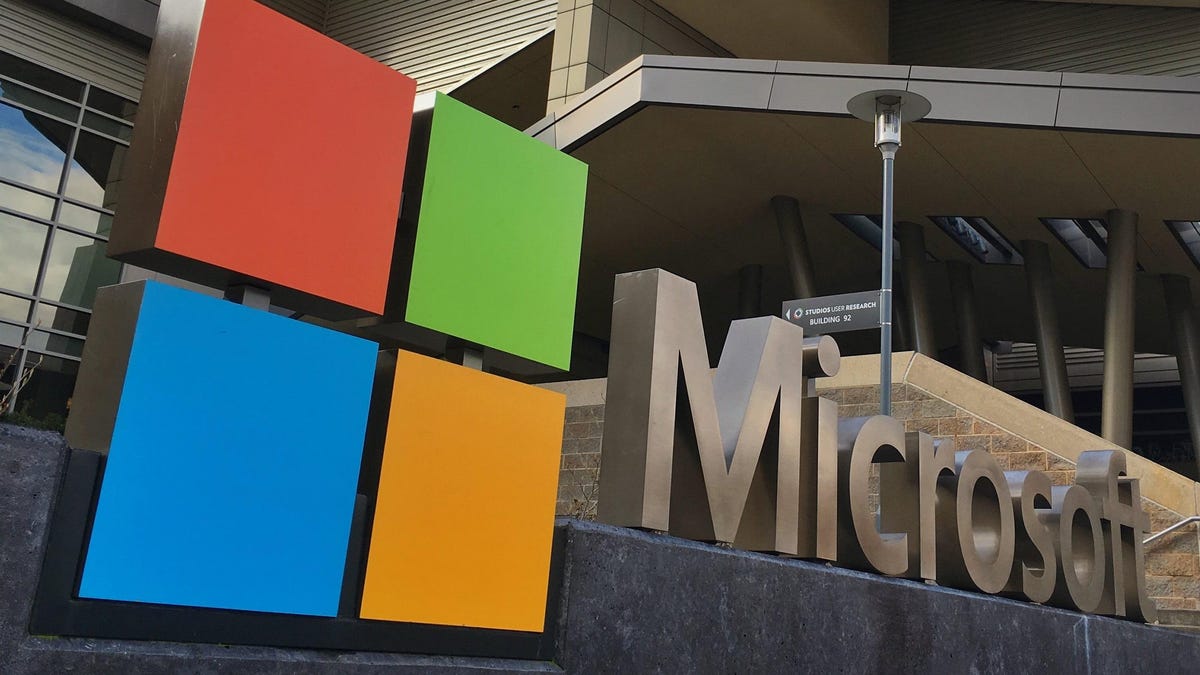Microsoft launches first AI hub to reverse talent flow to the coasts and bring non-PhDs into AI jobs
Automation and artificial intelligence could disrupt a lot of jobs and a lot of lives, so Microsoft has picked one city to pilot an experiment to prepare for the future.

Microsoft hopes to bring non-PhDs to AI jobs.
The question about the implications of artificial intelligence, not just for the future of technology but the future of jobs and our communities, is something Microsoft is investing new energy and resources to answer. On Friday, the company announced that it'll open its "first regional hub for AI" in Louisville, Kentucky. The project will be an experiment to upskill people on how to work alongside AI and robots, and it'll create a learning lab to prepare communities for the years ahead when AI and automation are going to disrupt the economy and the workforce.
Microsoft chose Louisville because 28% of the jobs in the community are at risk from automation, according to research cited by Microsoft CTO Jennifer Byrne at the press conference announcing the partnership. Louisville has a particularly heavy manufacturing base, with 12% of all jobs being in the manufacturing sector.
On behalf of Microsoft, Byrne signed a three-year agreement with Louisville Mayor Greg Fischer at the launch event in Louisville. The first order of business will be to award fellowships this summer to four citizens who want to become subject matter experts in AI, the internet of things and data science.
Microsoft will open a new office in downtown Louisville, where the four fellowship winners will be located. It'll be an open space that the community can access. The idea is for people to come and meet with the fellowship participants and collaborate on AI solutions and ideas.
"They'll be receiving some very intensive training from Microsoft around AI certification, becoming AI cultural ambassadors and they'll be helping provide training and curriculum for educational institutions and the private sector in this community," said Grace Simrall, Louisville's chief of civic innovation and technology.
One of the reasons Louisville caught Microsoft's eye was because of its digital inclusion initiatives.
Training people who aren't typically getting access to AI expertise today is a big part of Microsoft's motivation. That's why it picked a city that wasn't on the East or West Coast of the US. It's why it's targeting people beyond just computer scientists at Stanford and MIT. And it wants to reach people -- especially women and minorities who are underrepresented in the AI field. Another reason Microsoft chose Louisville is because of the work the city has already been doing with its digital inclusion initiatives.
"You can produce people who can do AI if they have advanced graduate degrees and go to elite universities," said Simrall. "We're really interested in seeing if we can help on-board people who have a two-year degree, or at most, a four-year degree,"
The new partnership has also enlisted the help of additional partners, including the Brookings Institution, which has worked with Louisville for years and was responsible for making the connection between Microsoft and the city, as well as local giants Humana, GE Appliances and the University of Louisville. All of them are united around the idea of getting out in front of the changes that are going to be wrought by AI.
"We think that in the next 10 years we will see more change in our society than we've seen in the last 250 years," said Byrne at the launch event. "And where that change takes us, we don't even know. There's so much potential for us to reimagine ourselves and our community ... That also means that we have to get ready for what the future holds for us."
The concern, of course, is that AI and automation are advancing at such a rapid pace that they're going to eliminate a lot of the low-level jobs performed by humans. And then what happens to all of the people who are out of work?
"We are not Pollyannas. We don't think AI is going to save the world magically on its own," said Simrall. "That's part of why it's so important for Microsoft to have a civic partner. We are the ones who care deeply about the public benefit and the public good. And, we'll be helping inform and shape those values that go into AI systems and the policies that help us make sure we use AI responsibly and ethically."
Microsoft and Louisville will soon open the application process for the four fellowships. It'll be weighted toward local candidates, but Simrall said it's possible that it'll be open nationally and candidates could potentially relocate to Louisville for the fellowship. While the program is set to run three years, the fellowships will initially run for a year with the option to stay on longer.

